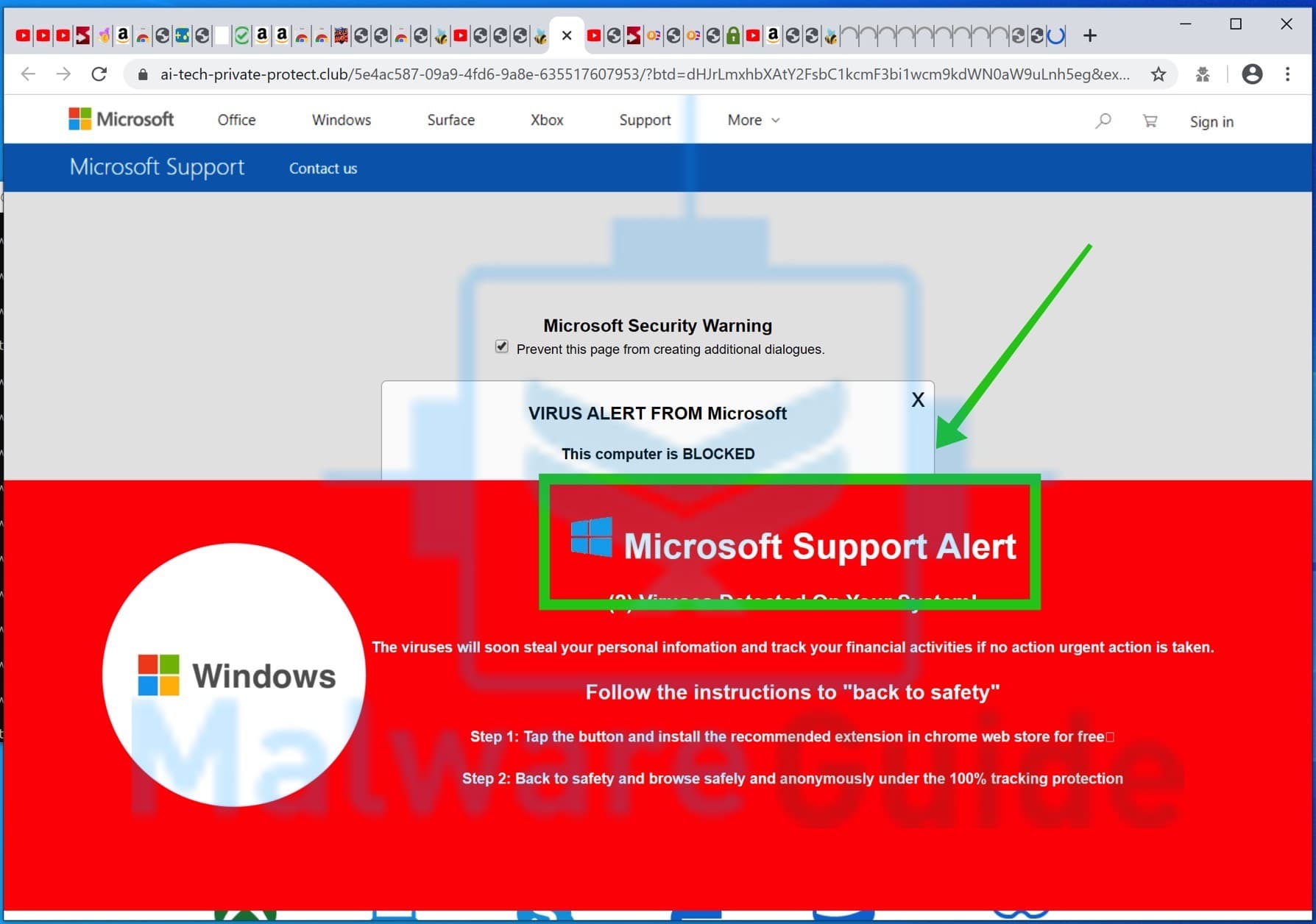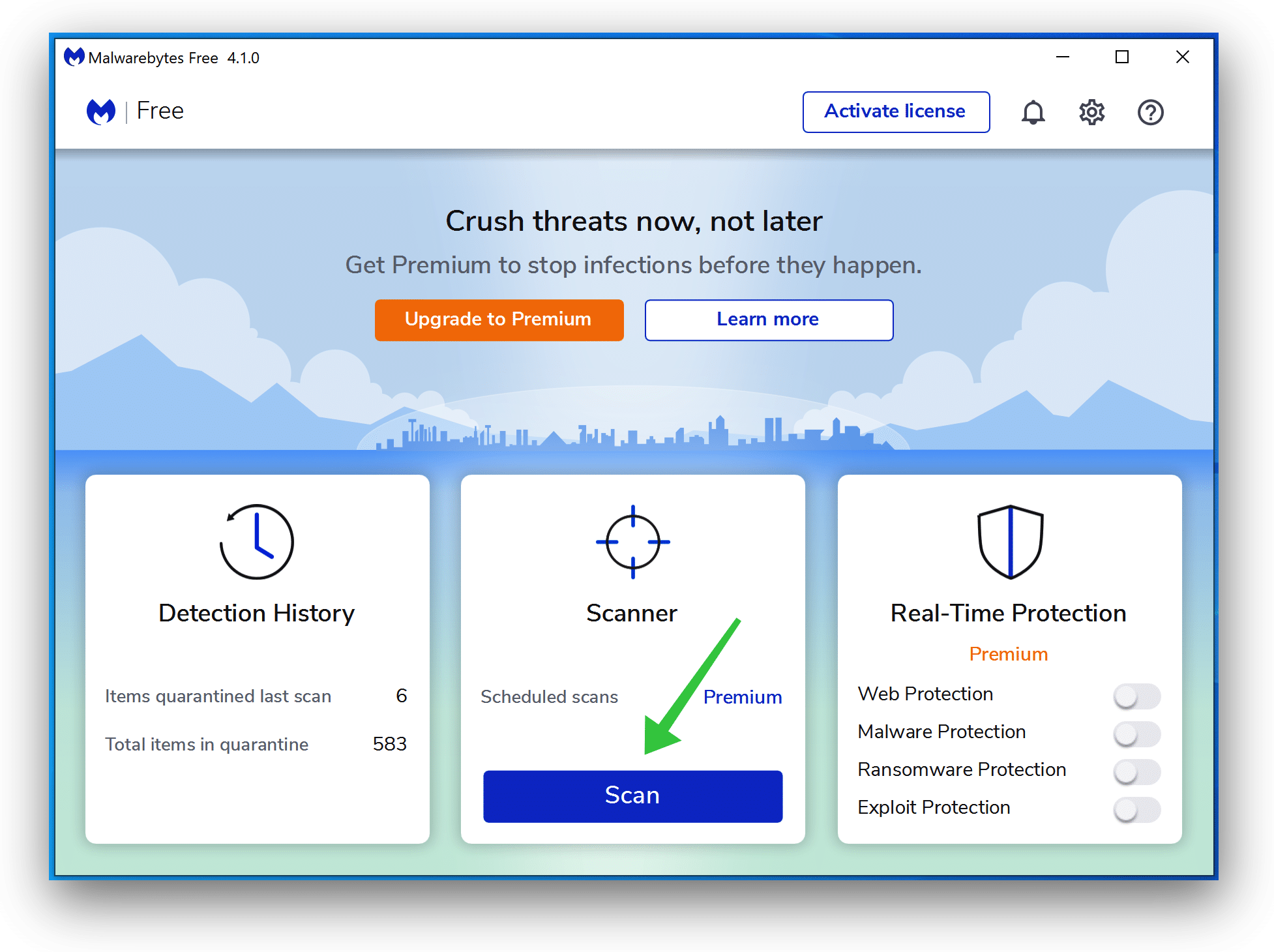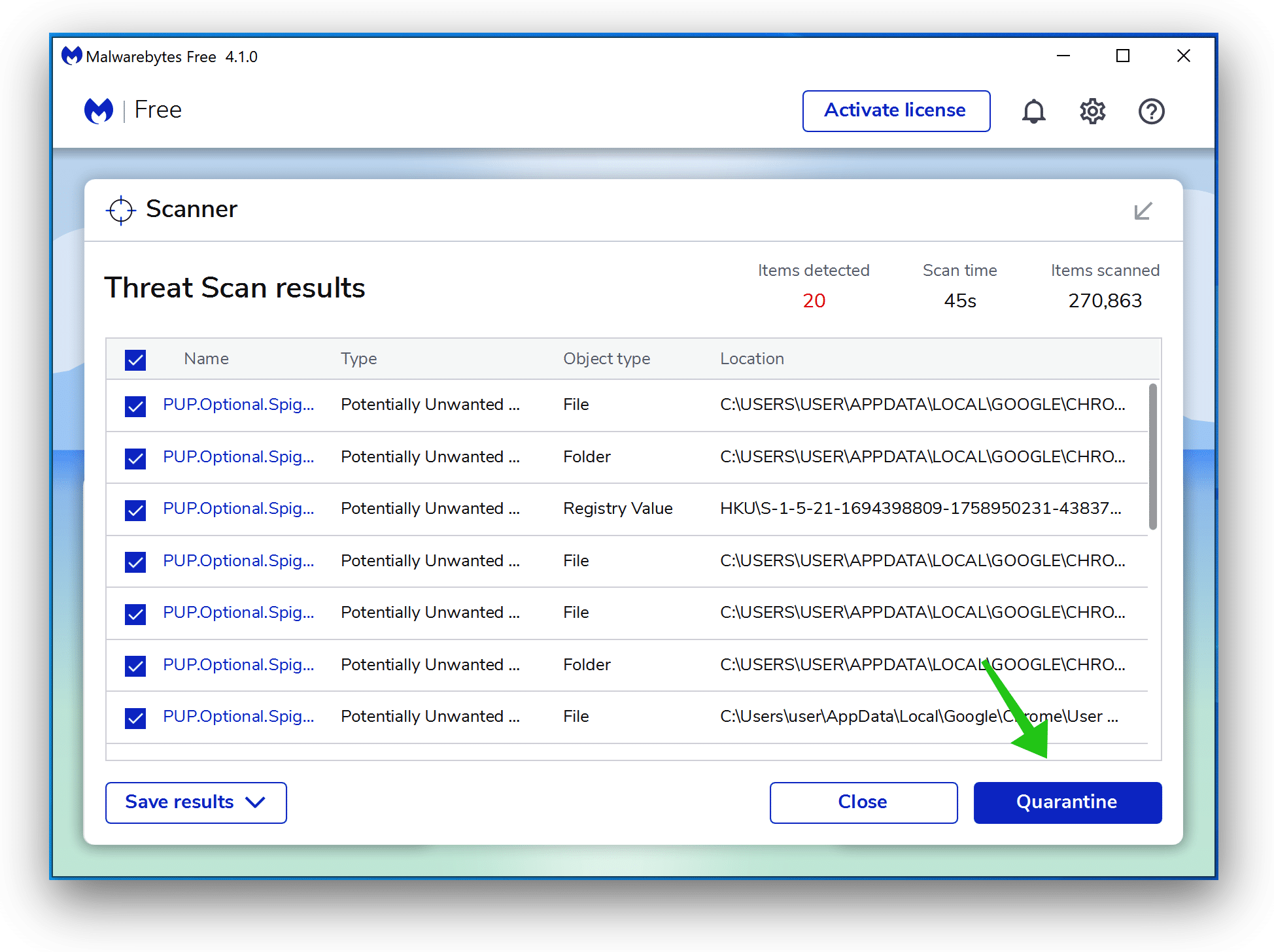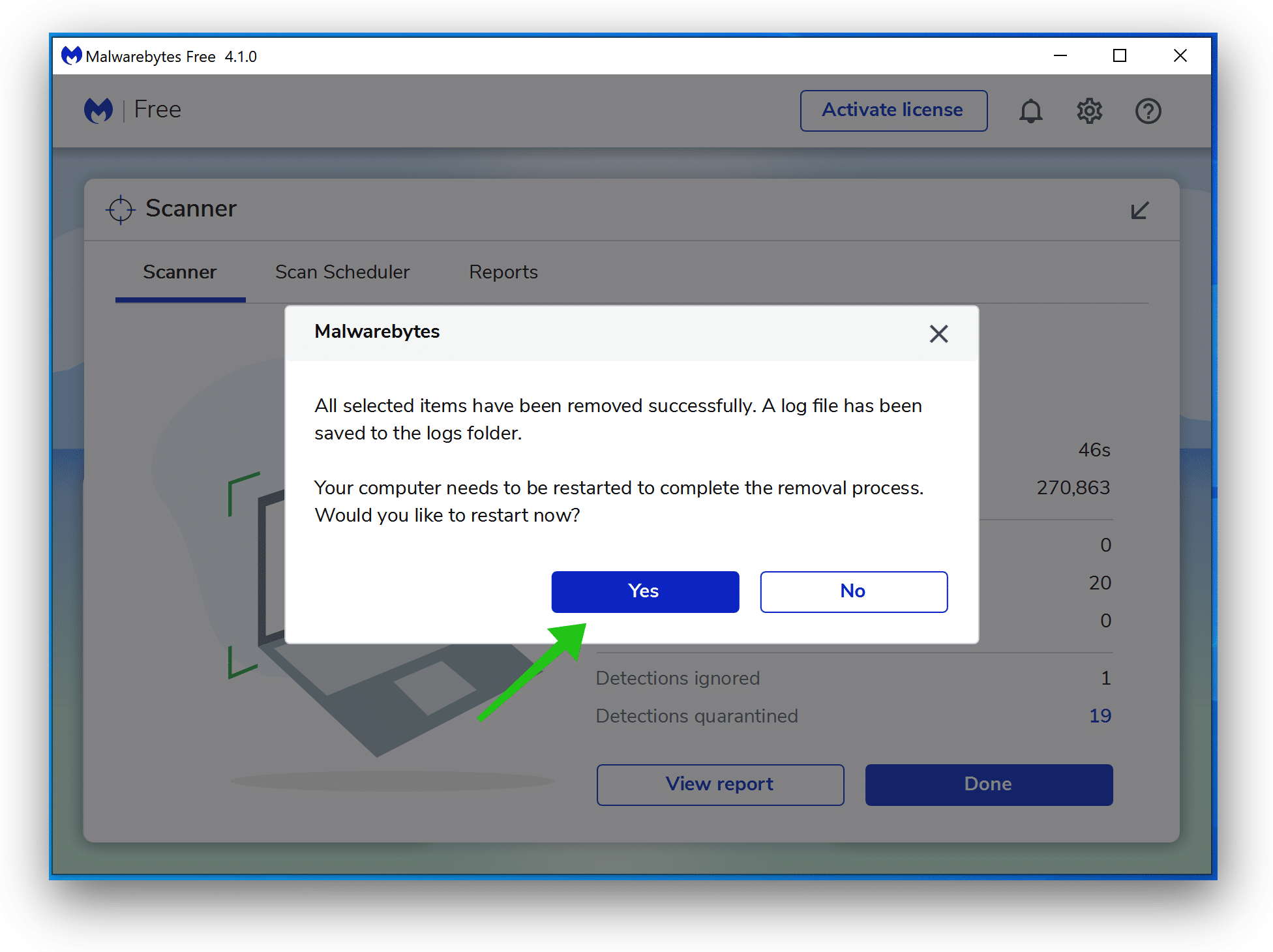Microsoft Support Alert pop-up in your browser is caused by adware on your computer. If your computer is infected with adware, then Microsoft Support Alert advertisements show up in your browser.
Not only adware is responsible for the Microsoft Support Alert pop-up ads. On the Internet, ad networks can also redirect your browser to Microsoft Support Alert. Some websites redirect users through ad networks to generate revenue. Therefore your browser may end up on the Microsoft Support Alert site.
I recommend that you check your computer for adware with Malwarebytes. Malwarebytes is free to check your computer for adware. If adware is found on your computer, you can use Malwarebytes to remove it for free.
This way, you will not run the risk of unwanted advertisements from Microsoft Support Alert and other sites that hijack your browser again.
Remove Microsoft Support Alert pop-up ads

 Remove Microsoft Support Alert pop-up ads with Malwarebytes
Remove Microsoft Support Alert pop-up ads with Malwarebytes
I recommend removing Microsoft Support Alert redirect with Malwarebytes. Malwarebytes is a comprehensive adware removal tool and free to use.
Adware leaves traces such as malicious files, registry keys, scheduled tasks on your device, make sure to completely remove unwanted ads from Microsoft Support Alert with Malwarebytes.
- Install Malwarebytes, follow on-screen instructions.
- Click Scan to start a malware-scan.

- Wait for the Malwarebytes scan to finish.
- Once completed, review the Microsoft Support Alert adware detections.
- Click Quarantine to continue.

- Reboot Windows after all the detections are moved to quarantine.

You have now successfully removed adware that is responsible for Microsoft Support Alert ads from your computer.
 Remove Microsoft Support Alert from Google Chrome
Remove Microsoft Support Alert from Google Chrome
- Open Google Chrome.
- In the top-right corner, expand the Chrome menu.
- In the Google Chrome menu, open Settings.
- At the Privacy and Security section, click Site settings.
- Open the Notifications settings.
- Remove Microsoft Support Alert by clicking the three dots on the right next to the Microsoft Support Alert URL and click Remove.
 Remove Microsoft Support Alert from Android
Remove Microsoft Support Alert from Android
- Open Google Chrome
- In the top-right corner, find the Chrome menu.
- In the menu tap Settings, scroll down to Advanced.
- In the Site Settings section, tap the Notifications settings, find the Microsoft Support Alert domain, and tap on it.
- Tap the Clean & Reset button and confirm.
 Remove Microsoft Support Alert from Firefox
Remove Microsoft Support Alert from Firefox
- Open Firefox
- In the top-right corner, click the Firefox menu (three horizontal stripes).
- In the menu go to Options, in the list on the left go to Privacy & Security.
- Scroll down to Permissions and then to Settings next to Notifications.
- Select the Microsoft Support Alert URL from the list, and change the status to Block, save Firefox changes.
 Remove Microsoft Support Alert from Internet Explorer
Remove Microsoft Support Alert from Internet Explorer
- Open Internet Explorer.
- In the top right corner, click on the gear icon (menu button).
- Go to Internet Options in the menu.
- Click on the Privacy tab and select Settings in the pop-up blockers section.
- Find the Microsoft Support Alert URL and click the Remove button to remove the domain.
 Remove Microsoft Support Alert from Edge
Remove Microsoft Support Alert from Edge
- Open Microsoft Edge.
- In the top right corner, click on the three dots to expand the Edge menu.
- Scroll down to Settings, scroll further down to Advanced Settings
- In the Notification section click Manage.
- Click to Disable the on switch for the Microsoft Support Alert URL.
 Remove Microsoft Support Alert from Safari on Mac
Remove Microsoft Support Alert from Safari on Mac
- Open Safari. In the top left corner, click on Safari.
- Go to Preferences in the Safari menu, now open the Websites tab.
- In the left menu click on Notifications
- Find the Microsoft Support Alert domain and select it, click the Deny button.